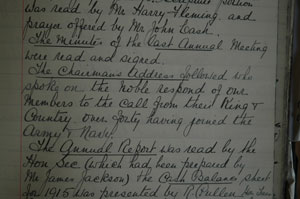 November is the month when the British wear a red poppy to commemorate those who sacrificed their lives during wars. The eleventh hour of the eleventh day of the eleventh month marks the signing of the Armistice on 11th November 1918, signalling the end of World War One.
November is the month when the British wear a red poppy to commemorate those who sacrificed their lives during wars. The eleventh hour of the eleventh day of the eleventh month marks the signing of the Armistice on 11th November 1918, signalling the end of World War One.
Queen Elizabeth’s visit to Ireland last year to honour the memory of the Irish men who fought and died for King and country in the Great War and, significantly, those who died in the struggle for Irish freedom was a landmark moment in Anglo-Irish relations.
It put to rest, for many, any lingering doubt over Britain’s willingness to apologise for the occupation of Ireland. That gesture requires us to re-examine our relationship with Remembrance Day. It’s about honouring all those who have died in conflicts. That doesn’t preclude us here from entering into the spirit, symbolically at least.
The Great War was supposed to be the last ever war and given what followed, the wearing of the poppy in November also signifies the question, ‘what lessons have we learned?’
An interesting local counterpoint is that by March 1916, 40 men from the Ringsend YMCA left to join the war effort. An archive entry (above) in the minutes of a YMCA meeting states, ‘The treasurer says we are doing well financially but when the boys come home we’ll have a grand praise supper.’
‘The secretary was requested to write a letter of sympathy to Mrs. Glasgow on the death of her son in the war, a member of our association,’ it continues.
Anchorage Project Manager Joe Donnelly says, “100 years ago, countries fought their wars on the battlefields. They sent their youngest and fittest to be slaughtered, where today many countries send their youngest and fittest to compete in the Olympics.”
Parallelling the experience of young people today and back then shows that the spirit of youth is embodied by athletes like Katie Taylor, when 100 years ago they were used as cannon fodder.
Traditional role models were often militaristic. These days sports people bring prestige and honour to their country through sport. That is why we come to a standstill for national sporting occasions. We all need to feel a sense of pride about our identity, that is so vitally important.
We all benefitted from the freedoms afforded to us by the slaughter of so many during World War One and we are all affected by global conflicts that continue to this day. If Remembrance Day is a time to reflect quietly on that, then we should welcome it here too.
By Rupert Heather

